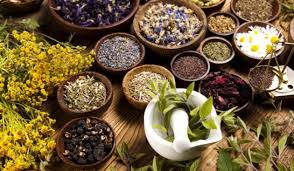
Unani medicine is a time-tested system of healing that has been practiced for centuries. Rooted in ancient Greek traditions and further developed by Persian and Arab scholars, this holistic approach to health continues to play a significant role in modern healthcare. With its focus on balance, natural remedies, and individualized treatment, Unani medicine offers an alternative or complementary option for managing various health conditions. As the world increasingly embraces integrative medicine, Unani practices are gaining renewed attention for their potential to support overall well-being.
The Foundations of Unani Medicine
Unani medicine is based on the concept of the four humors: blood (Dam), phlegm (Balgham), yellow bile (Safra), and black bile (Sauda). According to Unani philosophy, maintaining a balance between these humors is essential for good health. The system also emphasizes the importance of the six essential factors (Asbab-e-Sitta Zarooriya), which include air, food and drink, sleep and wakefulness, physical activity and rest, mental states, and elimination of waste. Practitioners assess a patient’s temperament (Mizaj) and lifestyle to determine the best course of treatment.
Unani Medicine and Natural Healing
One of the main appeals of Unani medicine is its reliance on natural ingredients. Herbal formulations, minerals, and animal-derived products are commonly used in treatments. Some well-known Unani remedies include:
- Honey and black seed – Used for immunity boosting and digestive health
- Aloe vera – Known for its skin and gastrointestinal benefits
- Sandalwood and rose water – Used for cooling and soothing effects in skin treatments
- Triphala – A blend of three fruits beneficial for digestion and detoxification
Unlike synthetic drugs, Unani remedies aim to restore the body’s balance naturally, minimizing side effects while promoting long-term healing.
Unani Medicine in Treating Chronic Diseases
Modern healthcare struggles with chronic diseases such as diabetes, hypertension, and arthritis. Unani medicine provides effective natural solutions for managing these conditions:
- Diabetes: Unani formulations containing herbs like karela (bitter gourd) and jamun (Indian blackberry) help regulate blood sugar levels.
- Hypertension: Herbal preparations with garlic, hibiscus, and Indian snakeroot help control blood pressure.
- Arthritis and Joint Pain: Remedies using saffron, turmeric, and black seed oil are popular for their anti-inflammatory properties.
- Respiratory Disorders: Herbal tonics and steam inhalation with eucalyptus, licorice, and honey provide relief from asthma and bronchitis.
With lifestyle diseases on the rise, Unani medicine serves as a valuable tool for prevention and management, complementing conventional medical treatments.
The Growing Recognition of Unani Medicine in Modern Healthcare
As interest in alternative and traditional medicine grows, Unani medicine is being integrated into mainstream healthcare in various ways:
- Government Recognition and Regulation: Many countries have recognized Unani medicine as part of their national healthcare systems. In India, the Ministry of AYUSH (Ayurveda, Yoga & Naturopathy, Unani, Siddha, and Homeopathy) supports research, education, and practice of Unani medicine.
- Unani Research and Evidence-Based Studies: Scientific research is being conducted to validate the efficacy of Unani treatments. Clinical trials on herbal formulations have demonstrated their potential in treating ailments like liver disorders and metabolic conditions.
- Integration with Modern Medicine: Many healthcare practitioners advocate for an integrative approach where Unani medicine is used alongside conventional treatments. This is particularly beneficial in chronic disease management and post-surgical recovery.
- Global Interest in Herbal and Natural Therapies: The rising demand for herbal medicine and organic products has fueled interest in Unani remedies. With concerns over the side effects of pharmaceuticals, more people are exploring natural alternatives for their health needs.
Challenges and the Future of Unani Medicine
Despite its growing acceptance, Unani medicine faces challenges in achieving widespread recognition:
- Need for Standardization: Unlike pharmaceutical drugs, herbal medicines can vary in potency and composition. Establishing standardized formulations is crucial for consistency and effectiveness.
- Scientific Validation: While traditional knowledge supports Unani medicine’s effectiveness, more scientific research and clinical trials are needed to gain global acceptance.
- Integration with Modern Healthcare: Many medical professionals are unfamiliar with Unani principles. Greater collaboration between Unani practitioners and modern healthcare providers is needed to bridge this gap.
Looking ahead, Unani medicine has the potential to play a larger role in preventive healthcare and chronic disease management. Increased investment in research, education, and public awareness will help integrate this ancient healing system into modern medical practice.
Unani medicine remains a valuable part of the healthcare landscape, offering a natural and holistic approach to healing. As more people seek alternative and complementary treatments, Unani principles of balance and well-being continue to find relevance in modern healthcare. With continued research and integration, Unani medicine can contribute significantly to the global health system, providing effective and sustainable solutions for various ailments.